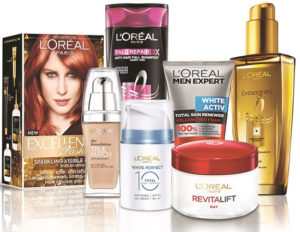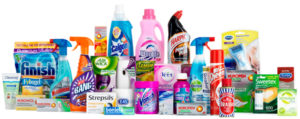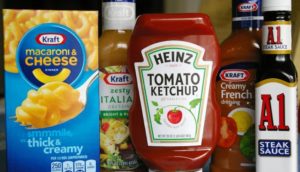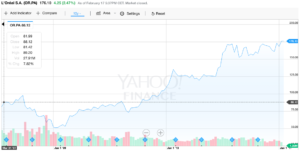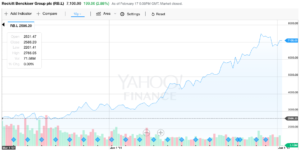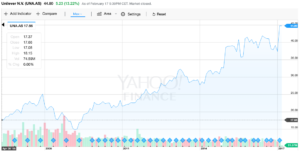Dear PGM Capital blog readers:
A question most investors and consumers are asking themselves these days is;
- JUST how big can a conglomerate get?
The year 2017 have started with some very interesting M&A (Merger & Acquisition) news from the following Giant Consumer Conglomerates:
- L’Oreal, snapping up three brands from Valeant for US$ 1.3 billion.
- Reckitt & Benkiser to buy Mead Johnson for US$ 16.7 billion.
- Heinz-Kraft, take over bid of US$ 143 billion for Unilever.
L’OREAL BUYS THREE BRANDS FROM VALEANT:
On January 10, 2017, French cosmetics group L’Oreal (OR.PA) announced that it is buying CeraVe, AcneFree and Ambi from Valeant Pharmaceuticals International (NYSE: VSX) for about US$1.3 billion in cash.
CeraVe develops cleansers, moisturizers and baby products and is one of the fastest-growing active skin care brands in the United States, L’Oreal said.
AcneFree provides acne treatments and skin cleansers, while Ambi makes products to treat dark spots and brighten skin.
L’Oreal said the three brands would stand alongside the likes of Vichy and La Roche-Posay in its Active Cosmetics division, which is among its strongest in terms of growth and resilience to slowdowns in consumer spending in the past three to four years.
RECKITT & BENKISER TO BUY MEAD JOHNSON:
On February 10, Reckitt Benckiser, (RB.L) the British maker of brands such as Dettol, Nurofen and Durex, said it would pay US$90 a share in cash to buy the US infant formula maker Mead Johnson (NYSE: MJN), marking its biggest ever deal and its entry into a fast-growing market for baby food in Asia.
The deal, including debt, is valued at US$17.9 billion.
HEINZ-KRAFT TAKE-OVER OFFER FOR UNILEVER PLC:
On Friday, February 17, the U.S. food company Kraft Heinz Co (NYSE: KHC) made a surprise US$143 billion offer for Unilever Plc (UNA.AS) in a bid to build a global consumer goods giant, although it was flatly rejected on Friday by the maker of Lipton tea and Dove soap.
The merger would bring together some of the world’s best known brands, from toothpaste to ice creams, and combine Kraft’s strength in the United States with Unilever’s in Europe and Asia.
A combination would be the third-biggest takeover in history and the largest acquisition of a UK-based company.
PGM CAPITAL COMMENTS & ANALYSIS:
L’Oreal – Valeant deal:
L’Oreal paid nearly eight times for the three Valeant brand’s combined annual revenue of US$168 million as it expands into one of the fastest growing areas of the beauty and skincare market.
Below chart shows that the share of the company has appreciated with approx. 117% in the last 10 years.
In the same period the company was able to increase its yearly dividend from US$ 1.18 a share in 2007 to US$ 3.10 a share in 2016, an increase of its yearly dividend of approx. 162 percent.
Based on the above we have a BUY rating on the shares of L’Oreal.
Reckitt & Benkisser – Mead Johnson deal:
Mead Johnson could be a good buy for Reckitt because it further diversifies its range of consumer categories, which are currently best represented by Lysol cleaning, Durex-condoms, Nurofen painkillers and Scholl footcare.
Mead Johnson’s strength in Asia, particularly China, would also usefully increase Reckitt’s exposure to higher-growth emerging markets.
Below chart shows that the share of the company has appreciated with approx. 174% in the last 10 years.
In the same period the company was able to increase its yearly dividend from US$ 0.50 a share in 2007 to US$ 1.47 a share in 2016, an increase of its yearly dividend of approx. 193 percent.
Based on the above we have a BUY rating on the shares of Reckitt & Benkisser.
Heinz-Kraft – Unilever deal:
Unilever has rejected a US$143 billion takeover approach from Kraft Heinz, the food conglomerate backed by Brazilian 3G Capital Controlled mainly by Jorge Lemann and Warren Buffett, setting the stage for a battle between two of the largest consumer goods companies in the world.
Credit rating agency Moody’s characterized the bid for Unilever as “credit negative” as the combined company would be more highly financially leveraged.
Kraft has offered to keep three headquarters for the combined company in the United States, Britain and the Netherlands.
Like many other consumer goods companies, both Kraft Heinz and Unilever have been suffering from a slowdown in growth as brand-fickle consumers in mature markets increasingly turn to start-ups for more exciting new products.
Under UK takeover rules, Kraft Heinz has until the close of business on March 17 to make a binding bid for Unilever or walk away for six months.
Unilever said Kraft’s proposal included US$ 30.23 per share in cash, payable in U.S. dollars, and 0.222 of a share in a new enlarged entity per Unilever share and represented an 18 percent premium to its share price on Thursday.
As can be seen from below chart, Unilever’s shares rose to a record following news of the offer, and closed 13.22 percent higher in Amsterdam to Euro 44.80 (approx. US$ 4750), short of Kraft’s US$50 per share offer price, with the news lifting shares across the sector.
We’ll keep a close eye on the news and stock of Unilver Plc, to see whether Heinz Craft will increase its bid for Unilever or that it will withdraw from it.
The proposed US$143 billion tie-up between Kraft Heinz of the US and Anglo-Dutch group Unilever is off, both companies said today, Sunday, February 19, 2017.
In a joint release they said: “Unilever and Kraft Heinz hereby announce that Kraft Heinz has amicably agreed to withdraw its proposal for a combination of the two companies.
“Unilever and Kraft Heinz hold each other in high regard. Kraft Heinz has the utmost respect for the culture, strategy and leadership of Unilever.”
Until Next week
Eric Panneflek

